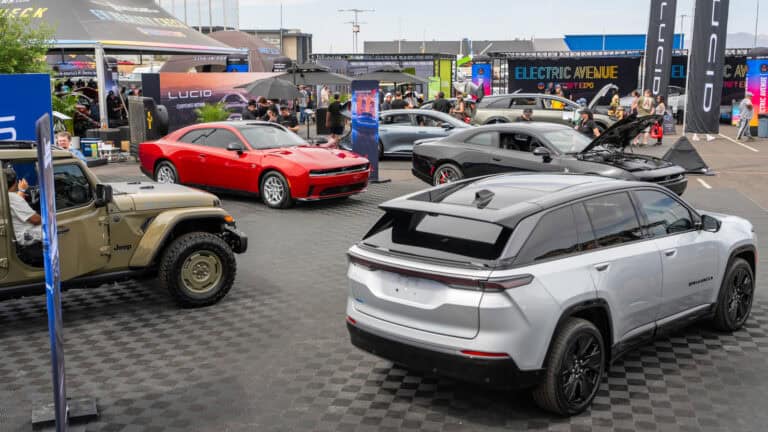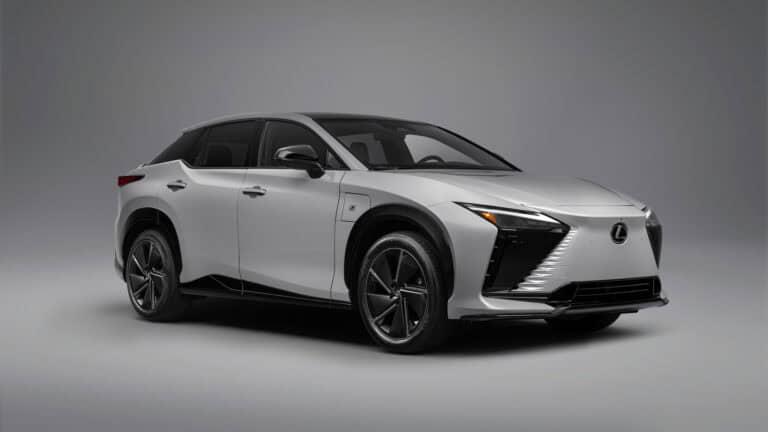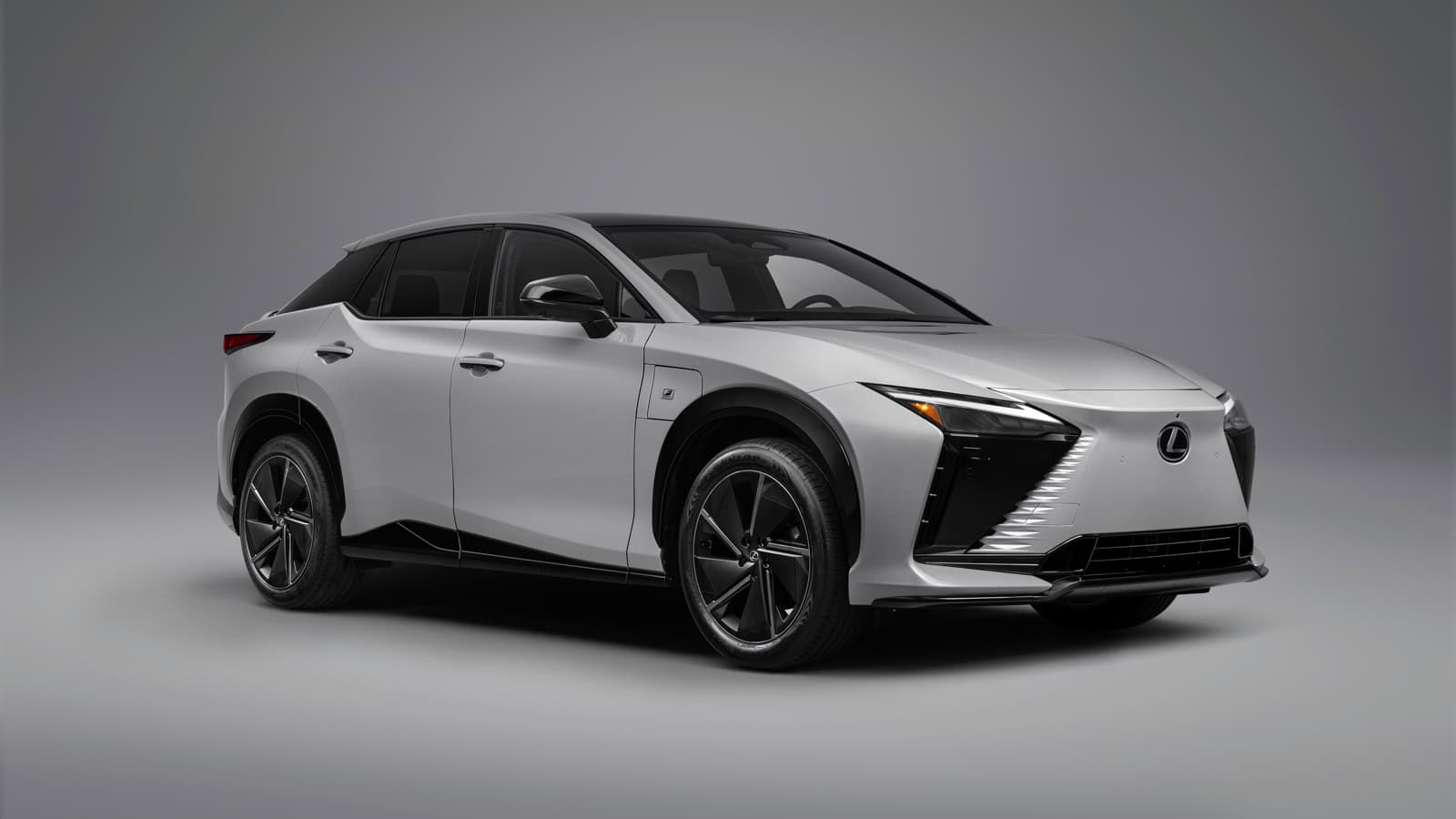- Electric vehicles offer cost advantages through lower fuel and maintenance expenses compared to gas-powered cars.
- EVs produce no tailpipe emissions, contributing to cleaner air and reduced environmental impact over their lifetime.
- Charging infrastructure continues to grow, with over 73,000 public stations and more than 217,000 charging ports in the U.S.
ADVERTISEMENT
Electric cars are changing transportation as we know it. They offer lower running costs, cleaner energy use, and a range of other benefits that appeal to a growing number of drivers. But what makes these vehicles such a smart option, and what should you know before making the switch? Let’s break down the key advantages of electric cars.

Electric Cars Save Money Long Term
One of the biggest draws of electric cars is their long-term cost savings. Charging an EV is far cheaper than filling a gas tank. For instance, California drivers typically spend about half as much on electricity to power their vehicles compared to the cost of gasoline for the same mileage. And with time-of-use rates offered by many utility companies, charging during off-peak hours can save even more.
Maintenance costs are another area where EVs shine. Electric motors have fewer moving parts than internal combustion engines (ICE), eliminating the need for oil changes, spark plugs, and fuel filters. Regenerative braking systems also reduce wear and tear on brake pads, adding to the savings.
For those hesitant about upfront costs, federal and state incentives can bridge the gap. Buyers can access tax credits ranging from $3,750 to $7,500 depending on the battery size. Additionally, local rebates and programs often offer discounts for purchasing EVs or installing home charging equipment. These incentives, combined with lower running costs, make EV ownership more accessible than ever.
ADVERTISEMENT
Electric Vehicles Combine Efficiency and Performance
Electric vehicles excel in efficiency when compared to traditional gas-powered cars. Many fully electric models achieve over 300 miles of range, combining impressive energy efficiency with practical driving capabilities.
Plug-in hybrid vehicles (PHEVs) operating in electric mode are also impressive, consuming just 25–40 kWh per 100 miles. In contrast, conventional gasoline-powered cars fall short of these efficiency levels, highlighting the clear efficiency advantages of electric options.
Electric vehicles deliver a fun driving experience thanks to their instant torque. These cars accelerate smoothly and quickly from a standstill. The Rivian R1T, for example, goes from 0 to 60 mph in just 3 seconds, while the Tesla Model S Plaid achieves the same speed in 2.1 seconds.
These acceleration times outperform most gas-powered supercars, highlighting the impressive capabilities of EVs. Even more affordable options, like the Nissan Leaf, provide responsive performance that makes city driving enjoyable and stress-free.
Electric Vehicles Save Money and Reduce Pollution
Driving an electric vehicle helps save money while also benefiting the environment. Electric vehicles produce no tailpipe emissions, which means they do not contribute to the air pollution often found in urban areas. This advantage is especially important in locations with poor air quality, where transportation is a leading source of harmful emissions.
Some argue that electric vehicles transfer pollution to power plants, but this perspective oversimplifies the issue. Electricity generation today uses a mix of renewable energy sources, such as wind, solar, and hydropower, which are much cleaner than gasoline combustion.
Over their lifetimes, electric vehicles produce about one-third of the emissions of a comparable internal combustion engine vehicle. As more renewable energy is added to the grid, this difference continues to grow.
ADVERTISEMENT
Electric Car Charging Made Simple
Charging an electric car has never been more convenient. Home charging setups allow you to refuel while you sleep, and many modern EVs can achieve ranges of 200-300 miles per charge, which is enough for most daily commutes and even weekend road trips.
Public charging infrastructure is also expanding rapidly. In the United States, there are now over 73,828 public charging stations with more than 217,857 charging ports, according to the U.S. Department of Energy, making it easier than ever to find a spot to top up.
For those worried about range, plug-in hybrids offer flexibility by combining electric power with a gasoline engine for longer trips. Meanwhile, dedicated apps, like Chargeway, and online maps simplify finding charging stations, so range anxiety becomes a thing of the past.

Battery Advances Lower Costs and Boost Longevity
Battery technology has come a long way, with manufacturers offering warranties of up to 8 years or 100,000 miles. Predictive models suggest that modern batteries can last 12–15 years in moderate climates. While replacement costs can be high, prices are dropping steadily as production scales up and technologies advance.
Companies like Polestar and Tesla are working on reducing the environmental impact of battery production by adopting more sustainable manufacturing methods. These efforts include utilizing cleaner energy sources, improving material sourcing practices, and striving to achieve carbon neutrality throughout their production processes.
ADVERTISEMENT
Electric Cars Are Practical and Affordable
If you’re considering an electric car, the benefits are clear. Lower running costs, reduced emissions, and a range of financial incentives make these vehicles a practical and environmentally friendly choice.
For those undecided, tools like the Vehicle Cost Calculator can break down and compare the long-term costs of owning an electric vehicle versus a traditional gas-powered car. With continued advancements in battery technology, improved charging infrastructure, and increasing affordability, electric vehicles are becoming more accessible to a wide range of drivers.
ADVERTISEMENT

IMAGES: ELECTRIFY EXPO
FTC: We use income-earning auto affiliate links. Learn more.











